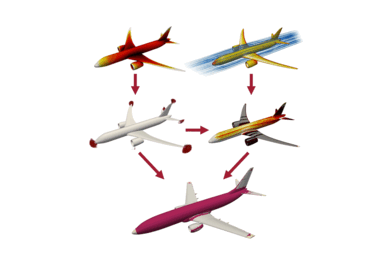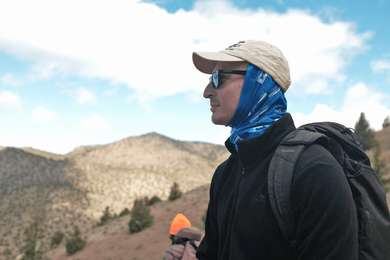An MIT initiative is using the global crowd to help solve climate change. And with the United Nations’ climate agreement anticipated to fall short of the 2 degree Celsius carbon emissions target, it’s never been a more critical time to take this approach.
MIT’s Climate CoLab initiative is a growing community of 50,000 people from around the world who work together online through a series of interrelated contests focused on different aspects of the climate change problem. Yesterday, MIT hosted the Crowds and Climate conference, where the Climate CoLab awarded its 2015 contest winners.
Eden Full from the non-profit SunSaluter won the $10,000 Grand Prize for its technology that makes energy and water more accessible in the developing world. Their product uses gravity and water to rotate a solar panel throughout the day, generating 30 percent more electricity than a standard panel and four liters of clean drinking water each 24-hour period. The rotator is cheaper than motorized solar trackers and has already achieved success: there are already 130 SunSaluters in 16 countries.
"This prize is especially important now," said Full, founder of the project. "We just decided that SunSaluter will become fully volunteer-led, supported by our non-profit and corporate partners. This funding will go toward making that possible."
In addition, two proposals received honorable mention awards:
- A national campaign on energy conservation and renewable energy in Indian schools that is working towards building a network of energy ambassadors. The campaign already has support from the Indian government, and is well on its way to fostering a more environmentally-aware generation of Indians.
- A mechanism for internalizing marine emissions that combines charging a levy on emissions from international maritime shipping, with a fuel levy on fuel consumption by domestic shipping
These proposals were selected by Robert Armstrong, director of the MIT Energy Initiative; Jason Jay, director of the MIT Sloan Sustainability Initiative; John Reilly, co-director of the Joint Program on the Science and Policy of Global Change.
The grand prize and honorable mention awards were selected from the 37 winners of the 24 contests run on the Climate CoLab in 2015. The winners are a diverse group of non-profits, entrepreneurs, scholars and climate experts, students, business people, and concerned citizens looking to confront the climate challenge, who hail from 11 countries.
The Climate CoLab also announced the winner of its United States Climate Action Plan contest, which sought regional solutions to climate change. Unlike the other contests, which target specific sub-problems that contribute to climate change, this contest asked participants to take different actions and combine them to form a regional strategy.
The winner for the United States Climate Action Plan contest suggested a pathway to engineer cities so that they are built for livability, sustainability, resiliency, energy-efficiency and affordability.
An important addition to this round of contests is a tool — and a team of climate modelers — to help people to evaluate the impact their ideas will have on global emissions. The public can also combine regional plans to form global strategies. The Global Climate Action Plan contest is still open and accepting submissions until Oct. 17th.
All the winners were recognized at the Crowds and Climate conference, held this week alongside MIT’s Solve conference. Crowds and Climate brought together leaders from businesses, non-profit organizations, governments, and communities around the world to advance an online global problem-solving effort to more effectively tackle climate change. This bottom-up approach enables large communities of people to work together to shift business practices, influence policy makers, and reshape public attitudes and behavior on climate change.
“Our goal is to open up the elite conference rooms and meeting halls where climate strategies are developed today and bring that discussion into an online forum where anyone with a good idea can contribute,” says Professor Thomas Malone, director of the Center for Collective Intelligence at the MIT Sloan School of Management and principal investigator for the Climate CoLab project.
“We are very proud of this year’s winners, and we see this as just the beginning of new ways to use our global collective intelligence to tackle important societal problems like climate change.”









